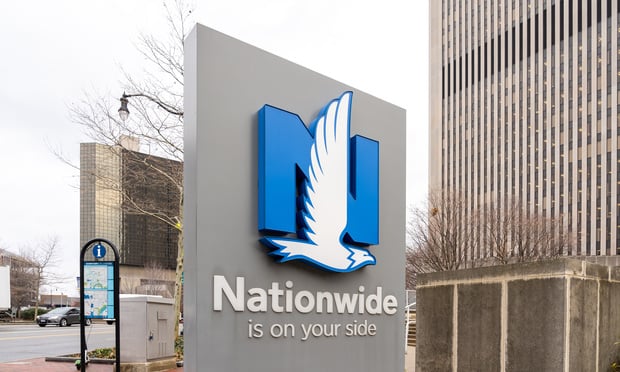 There are significant gaps between what consumers want from their insurers and what they feel they are receiving, even though overall satisfaction levels are high, according to an Accenture survey of 7,000 people from 13 countries.
There are significant gaps between what consumers want from their insurers and what they feel they are receiving, even though overall satisfaction levels are high, according to an Accenture survey of 7,000 people from 13 countries.
The survey revealed that younger consumers and those from emerging markets are much more interested in innovations such as mobile services, much more likely to shop around, but the most promising market segments.
More than three-quarters (76 percent) of respondents below 35 years expressed interest in using mobile devices to text insurers to receive updates on claim requests, or to interact with agents and brokers through smart phones equipped with video capabilities, compared to less than half (46 percent) of respondents over 45 years.
The survey found that the great majority (84 percent) of respondents say they are satisfied with their insurance provider but there is an expectation gap across the range of customer service issues. For example, nearly two-thirds (62 percent) said it was very important for their insurer to provide clear and easy-to-understand information on their policies, but only 27 percent of respondents said they were very satisfied with their insurers’ efforts to do so.
“This gap suggests that consumers have low expectations rather than that they are delighted with the experience they receive,” says Edwin VanderOuderaa, global managing director of Accenture’s Analytics group for financial services. “But this means there is an opportunity for insurers to differentiate themselves and gain market share by leveraging analytics to assess which products and services are working best and which need to be changed to deliver a better customer experience.”
In China 96 percent of customers said they were interested in new mobile services and there are similar high response rates in India (91 percent), South Korea (88 percent) and Brazil (83 percent). By contrast only 63 percent of respondents on average were interested in mobile services, and in Germany the figure was only 41 percent. The pattern was similar regarding use of social media networks and blogs when purchasing new insurance. These appealed to 49 percent of Brazilian respondents compared to the average figure of 30 percent and just 14 percent in France.
Younger consumers and customers in emerging markets are the least loyal:
- On average, more than one-fifth (22 percent) of respondents said they were likely to stop doing business with at least one of their insurers in the next 12 months but the figure rose to 31 percent amongst the 18 to 24 age group and was significantly lower at 10 percent among the over-55s.
- Customers in emerging markets are also more likely to switch insurers to get products more relevant to their needs. For example, 96 percent of consumers in China were likely to switch, compared to 76 percent on average and only 59 percent in the US.
Despite this, both young and emerging markets customers are the most willing to pay a premium to get products more relevant to their needs:
- Almost three-quarters (70 percent) of 18 to 24-year-olds said they were willing to pay more for this, compared to only a third (33 percent) of over 55s and 38 percent of 45 to 54-year-olds.
- This is also true of consumers in India, China, South Korea and Brazil, where 93 percent, 92 percent, 76 percent and 73 percent of respondents respectively would pay more, compared to an average figure of 52 percent and only 21 percent of French respondents.
Commenting on these trends, John DelSanto, global managing director of Accenture’s Insurance practice, says: “The fast-growing middle classes in emerging markets are determined to protect their new-found affluence and this has led to strong demand for insurance. This is a big opportunity for global insurers that are keen to expand. But they need to have a thorough understanding of the different groups of customers, especially the younger ones, and it will be important to develop innovative, personalized products and services and deliver them across all of the preferred channels.”
Among other key findings:
- More than three-quarters (78 percent) of respondents think that insurance products and services are not easy to understand.
- Almost the same number of respondents (75 percent) believes that insurers generally offer the same products and services.
- More than three-fifths (61 percent) of respondents said that it was very important for their insurer to provide prompt and effective service, or to answer requests in a timely manner, but only 32 percent of respondents were very satisfied with their insurers’ ability to deliver such service.
- While 53 percent of respondents stated that access to the information they need whenever they need it is very important to them, only 29 percent felt very satisfied with their insurers’ capacity to provide assistance on a 24-hour, seven days per week basis.
Want to continue reading?
Become a Free PropertyCasualty360 Digital Reader
Your access to unlimited PropertyCasualty360 content isn’t changing.
Once you are an ALM digital member, you’ll receive:
- Breaking insurance news and analysis, on-site and via our newsletters and custom alerts
- Weekly Insurance Speak podcast featuring exclusive interviews with industry leaders
- Educational webcasts, white papers, and ebooks from industry thought leaders
- Critical converage of the employee benefits and financial advisory markets on our other ALM sites, BenefitsPRO and ThinkAdvisor
Already have an account? Sign In Now
© 2025 ALM Global, LLC, All Rights Reserved. Request academic re-use from www.copyright.com. All other uses, submit a request to [email protected]. For more information visit Asset & Logo Licensing.








